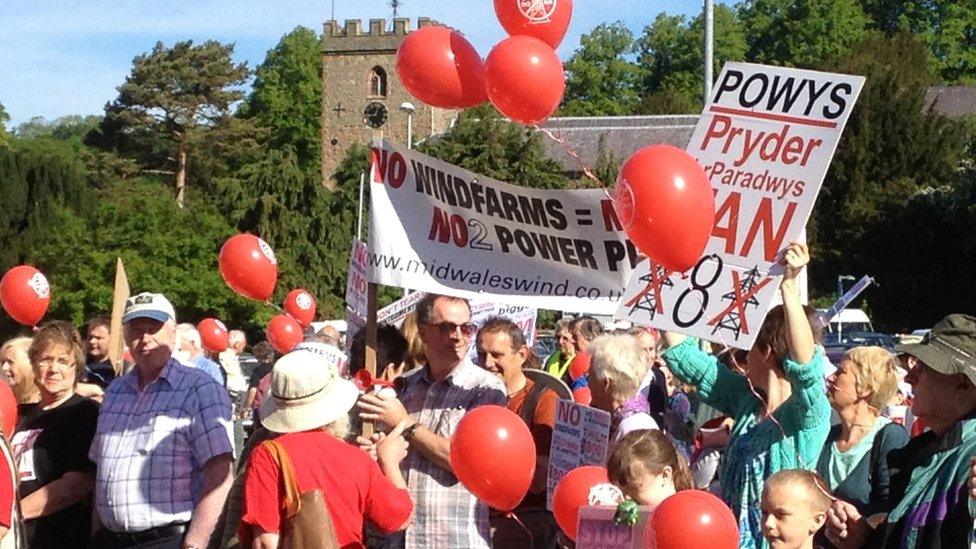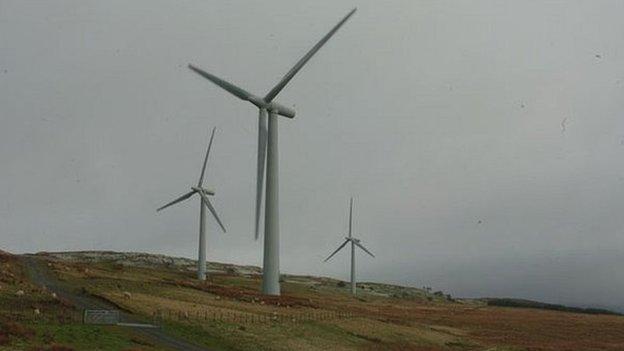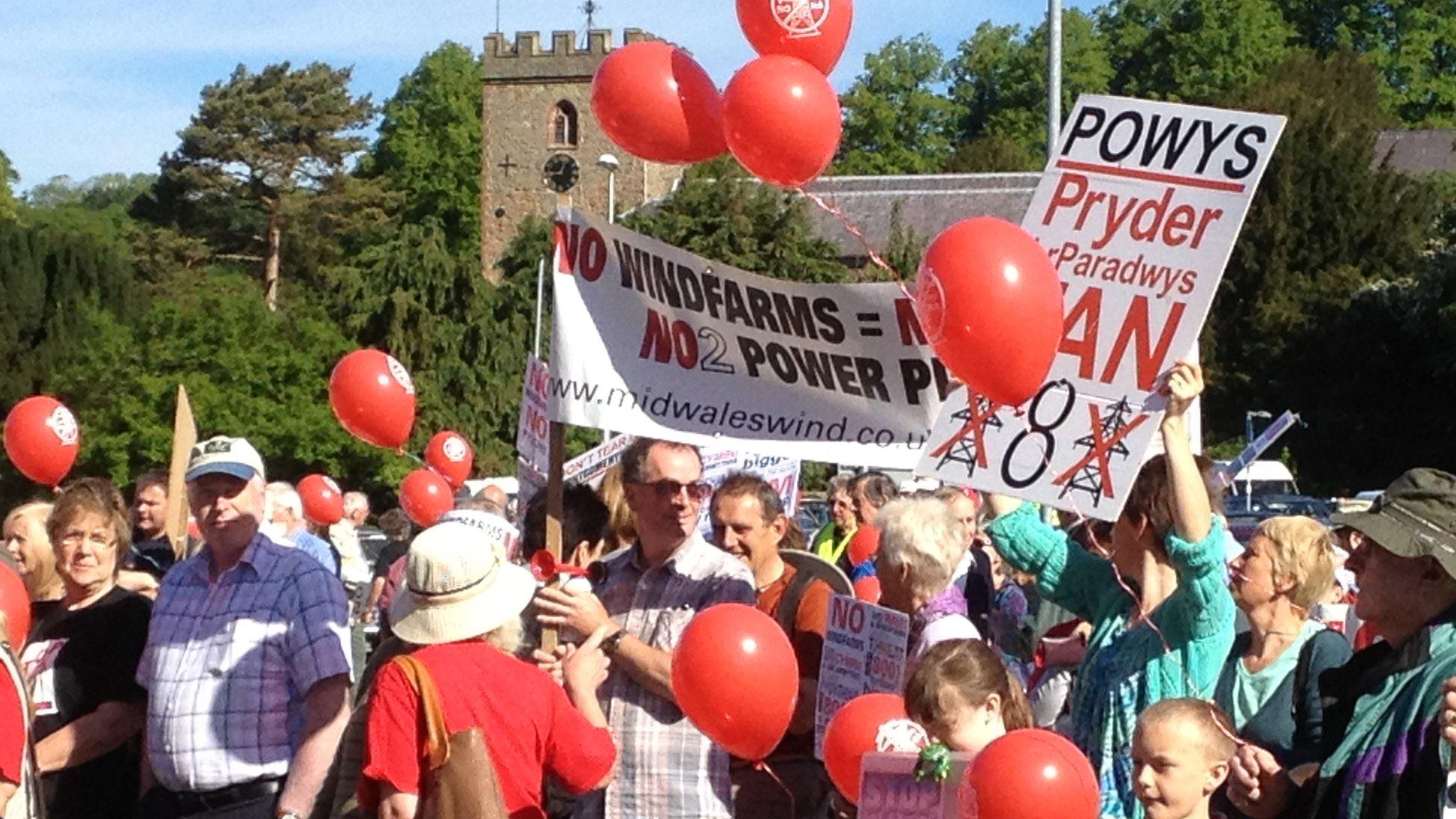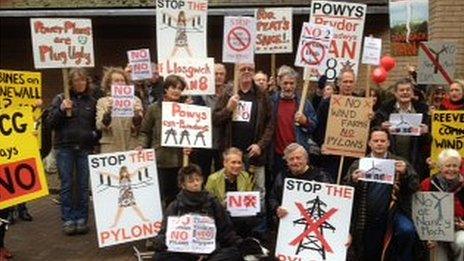Five Powys wind farm projects rejected and one approved
- Published

Hundreds of people have protested against onshore wind farm plans in Powys
Five onshore wind farm projects in Powys have been rejected by the UK government.
The decisions follow a combined public inquiry, external, which closed in May 2014.
A sixth proposal - to upgrade an existing wind farm at Llandinam - was approved, but plans for a power line to link it to the grid were rejected.
As part of the plan, power lines would have run through Shropshire to link energy generated by the wind farms to the national supply.
Montgomeryshire MP Glyn Davies welcomed the announcement while the Welsh government said it was "very disappointing".
Onshore wind energy has been a controversial issue in rural Wales, marked by protests against the visual impact of turbines.
The combined public inquiry, which ran for almost a year from June 2013, was ordered by the Department of Energy and Climate Change (DECC) after Powys council refused to approve construction for a range of wind farm projects.
'Cloud lifted'
Energy Minister Andrea Leadsom confirmed on Monday that only one of the six projects - a revamp of ScottishPower's existing wind farm at Llandinam - had been approved.
However, a proposed overhead power line connecting it to a sub-station at Welshpool was rejected.
A ScottishPower spokesperson said the firm acknowledged the decisions, adding: "We will now need to consider our next steps over the coming weeks."
Four other wind farm projects - at Llanbadarn Fynydd, Llaithddu, Llanbrynmair, and Carnedd Wen - were also refused.
A DECC spokesperson said: "Careful consideration has been given to each application, and the planning and energy issues involved."
Tory MP, Mr Davies said "a dark cloud" over Montgomeryshire had been lifted.
"We have protected the legacy which we have enjoyed, for our children to love in the way we do," he said.
"I am pleased that DECC Ministers have listened to the inspirational protest movement that rose up against the plans of the Welsh Government to desecrate mid Wales with pylons and several hundred additional turbines.
"It was a wholly unreasonable and insensitive proposal."
However, the Welsh government said the area would now "miss out" on investment, and jobs, while Wales had been "denied the opportunity to further reduce our carbon emissions by a decision made in Westminster".
"Today's decision is not only very disappointing and concerning but once again reinforces the importance of the Welsh government having control of energy consents for projects in our country," a spokesman said.
- Published30 May 2014

- Published31 March 2014

- Published4 June 2013

- Published25 September 2012
